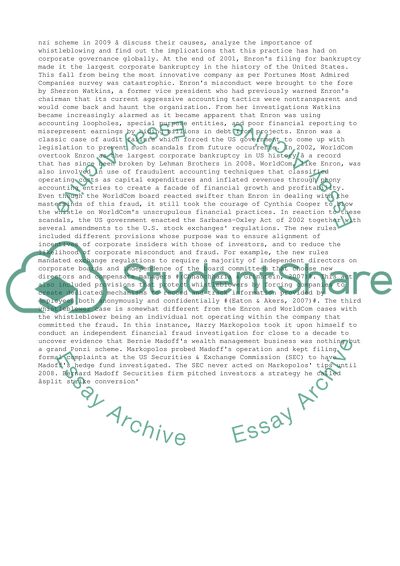Cite this document
(“Whistleblowing Research Paper Example | Topics and Well Written Essays - 1250 words”, n.d.)
Retrieved de https://studentshare.org/business/1429757-whistle-blowing
Retrieved de https://studentshare.org/business/1429757-whistle-blowing
(Whistleblowing Research Paper Example | Topics and Well Written Essays - 1250 Words)
https://studentshare.org/business/1429757-whistle-blowing.
https://studentshare.org/business/1429757-whistle-blowing.
“Whistleblowing Research Paper Example | Topics and Well Written Essays - 1250 Words”, n.d. https://studentshare.org/business/1429757-whistle-blowing.


